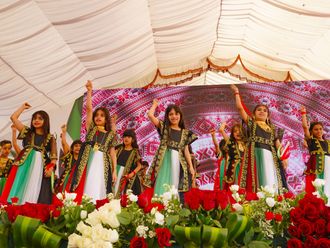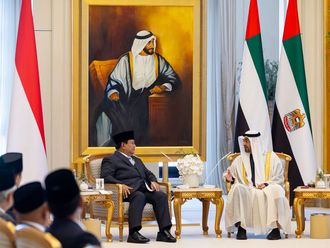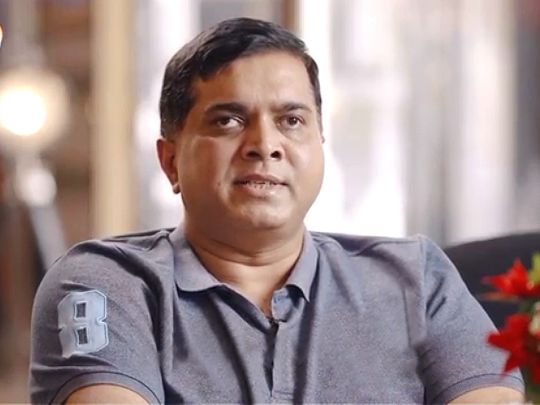
Dubai: V.V. Ravindra is a man on the move. From the speed at which his brain works, to the speed with which he navigates his wheelchair.
The words roll out fast as Ravindra, 45, narrates his journey from the Kolar Gold Fields in Karnataka, India, where he was born and raised, to his travels around the world and finally settling down in Dubai.
With 25 patents, many companies in India and the US, and plans to improve the life of people of determination, being bound to a wheelchair has only made him more determined.
“I have been to 44 countries, but have never experienced the respect that I get in Dubai. For a Person of Determination, there is no better place than Dubai,” Ravindra says. “Thanks to my elder brother Adi Narayana Murthy who brought me to Dubai.”
“I use the Metro and the bus to get around the city for five to six meetings every day. Or I call a wheelchair taxi. I don’t need to depend on anyone. I have also been in a situation when a policeman stopped all traffic at an intersection, in order to give me the right of way.”
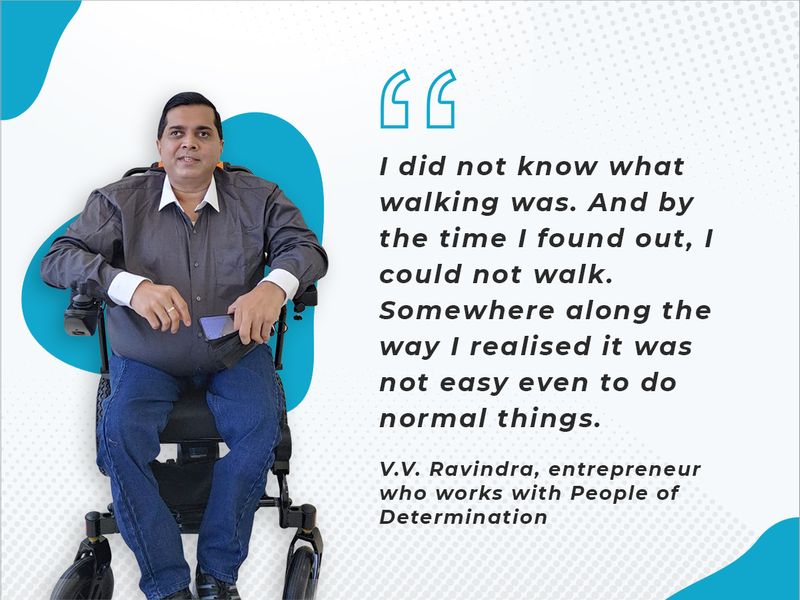
“And with the ID card that I have, access is free to many of the places around Dubai,” he says.
Early days
Ravindra was affected by polio when he was about seven months old. “I did not know what walking was. And by the time I found out, I could not walk. Somewhere along the way I realised it was not easy even to do normal things.”
Growing up in the Kolar Gold Fields, about 100km from Bengaluru, people lacked awareness about the disease.
“I realised early that my life would be challenging, but if I pushed myself, it could be better,” Ravindra says.
“I was taken to school on a bicycle. I had few distractions and focused on my studies, knowing that academics would play a big role in my life. I made sure I would be ranked in class.”
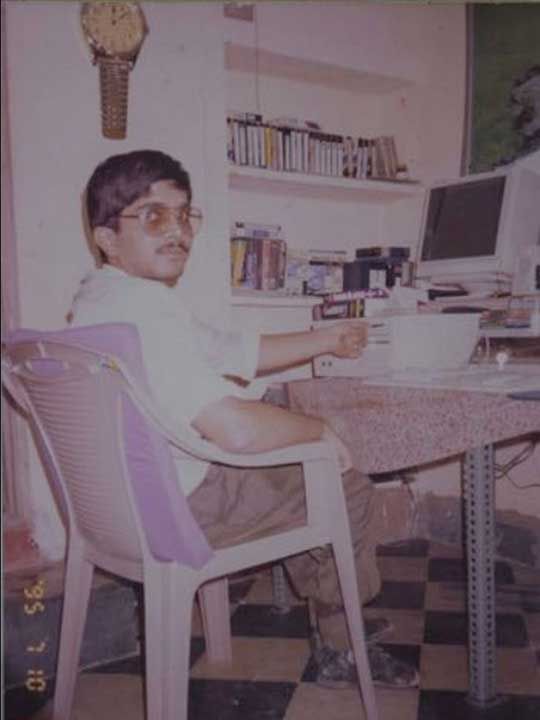
The turning point came when Ravindra was in Grade 5. His father gifted him a Sinclair Spectrum computer, with 128KB RAM that had to be connected to the TV. “It is still working,” Ravindra points out. “This is where my love for computers began. I learnt from manuals, and today computer programming is like child’s play for me.”
By the time he got to college, Ravindra was a whiz at programming, so much so that some of his professors came to learn from him after class.
Were there challenges while growing up?
“I had lots of issues with basic mobility which forced me to drag myself on the floor. Once I started using orthosis and crutches to walk, it was a new dimension. I could go to school and eventually college. From 2000 I started travelling the world, and there was no looking back after that. My family and friends were super supportive.
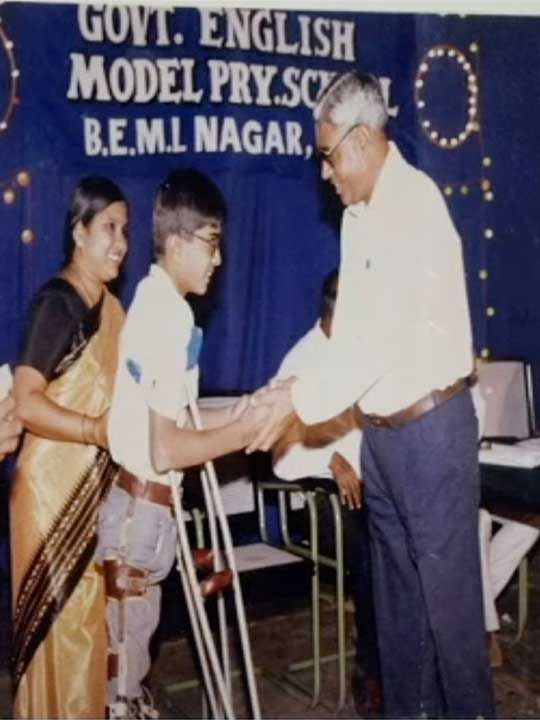
“I used to walk about seven kilometres every day using crutches and travelled by bus and train. There were a few falls and injuries, but that’s part of life!”
"Nobody knows the pain of mobility better than me!"
With this in mind, he designed a simple, modular electronic wheelchair at the affordable price of a smartphone.
For the past three years, Ravindra has been using powered wheelchairs to cover long distances.
“I like the speed and the fact that I can enter the metro and the malls with ease.”
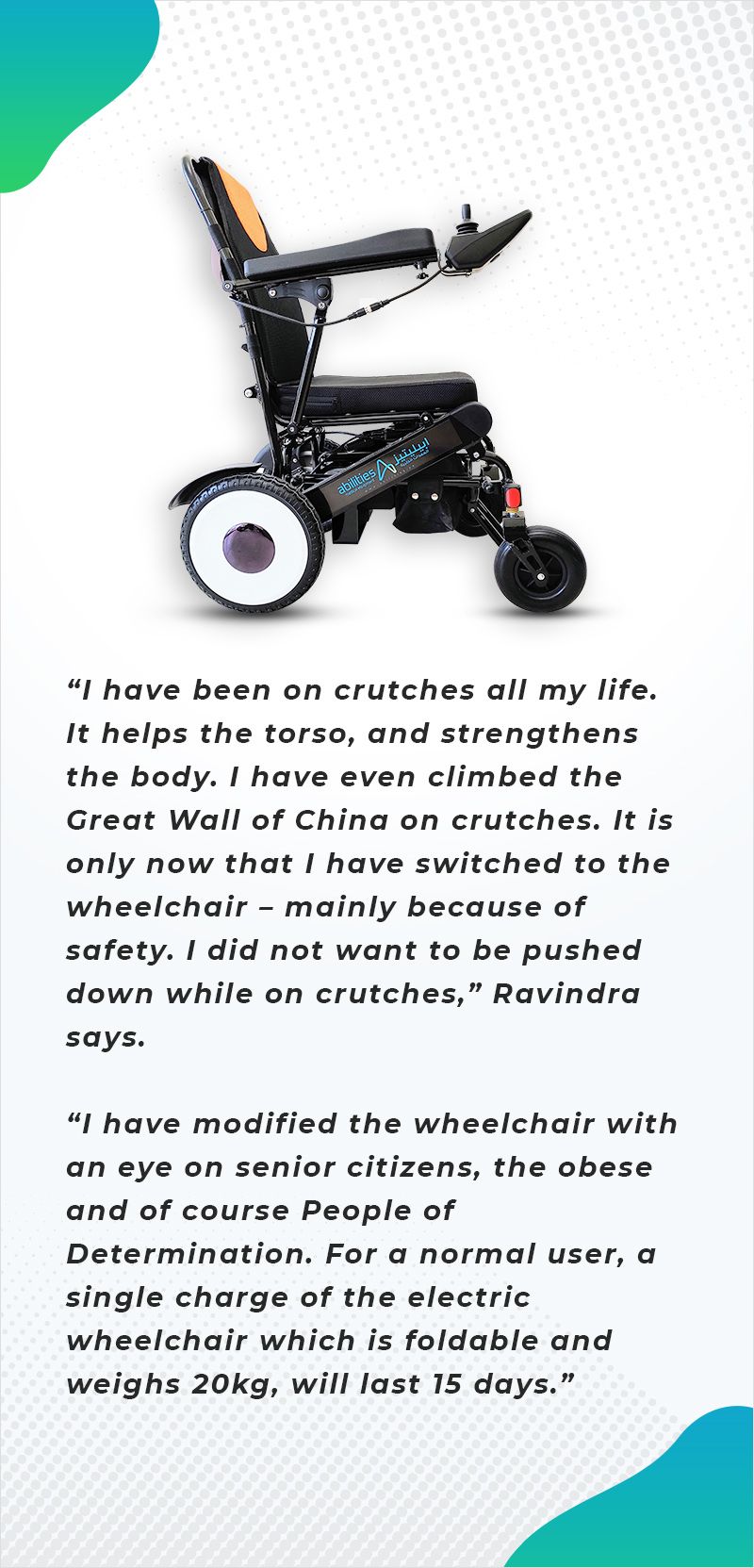
First break
After pursuing Electrical and Electronics Engineering from Bangalore University, Ravindra and his friends began an institute to teach computer applications and programming. At the back of his mind, was a desire to go to the US.
“Just when I got ready to go to the US, we found a person who showed interest in investing in our company,” Ravindra recounts.
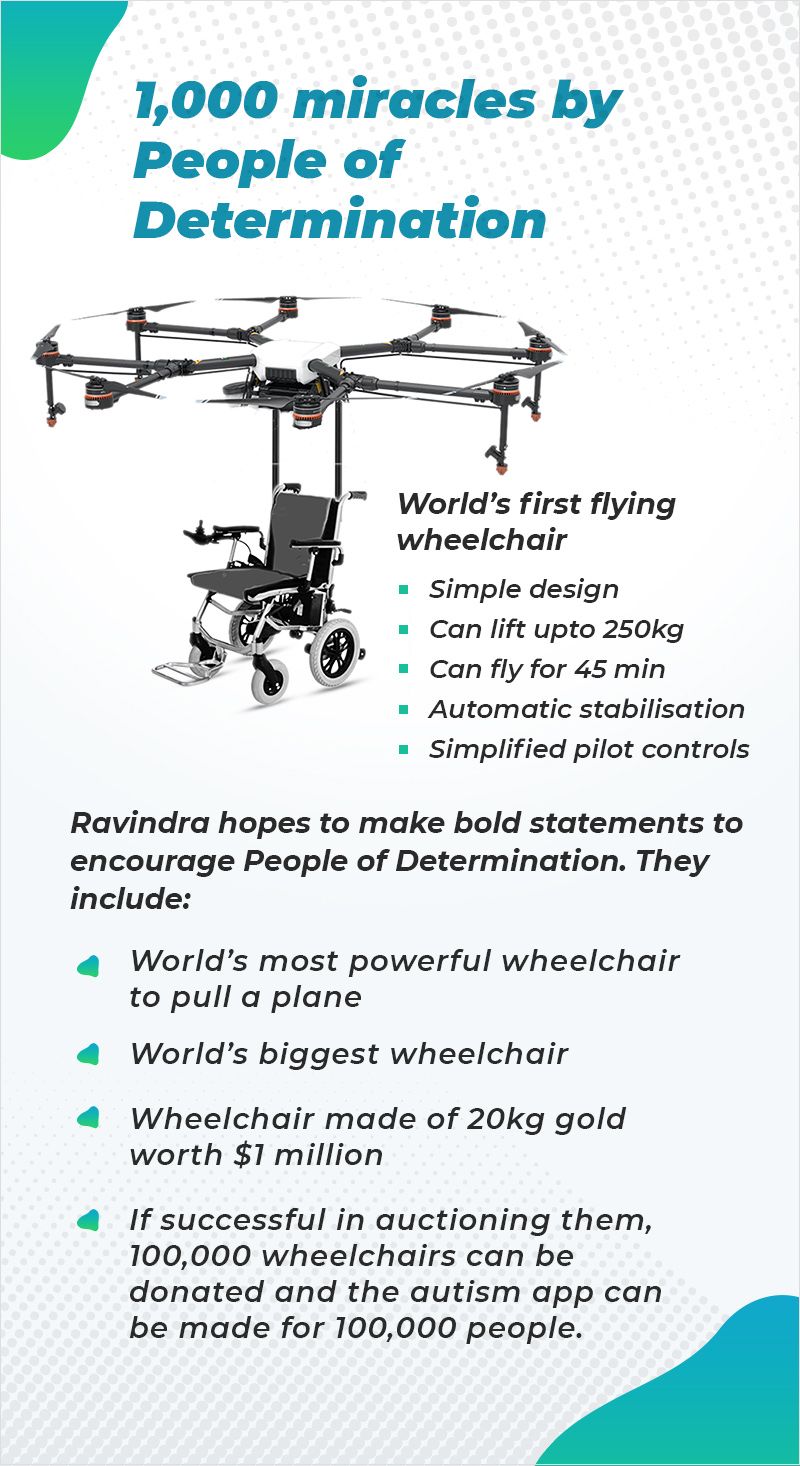
A collaboration with Microsoft resulted in an increased profile for the company, which was eventually sold in 2004 for $150m – a princely amount then.
“With the first success we got into patenting our products. We were pioneers in Indian language SMS in 2004 and did this till 2009 with a staff of 450 people. We did work in National Disaster Management and other projects.”
In 2010, while working on his health care company, focus turned to the world’s first mobile diagnostics, including CT scans. “We were able to send the results to mobile phones in 20 minutes, instead of the two days that it used to take earlier.”
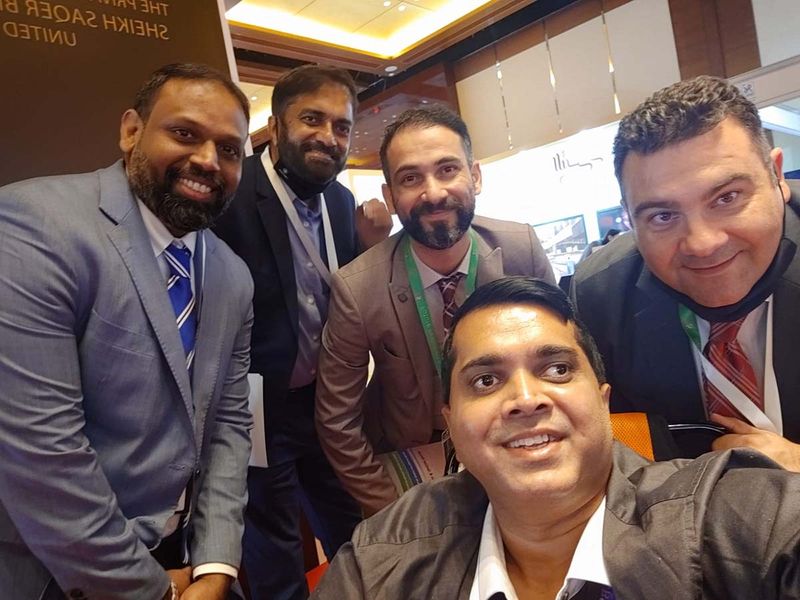
Work for people of determination
After working with Google for four years in building an educational platform, Ravindra started coming to Dubai for various projects from 2017. He has worked with different government organisations and has exposure working with schools.
Along the way, Ravindra started a home. He and his wife have a son, 14, who finds that home schooling gives him the time needed to pursue social initiatives.
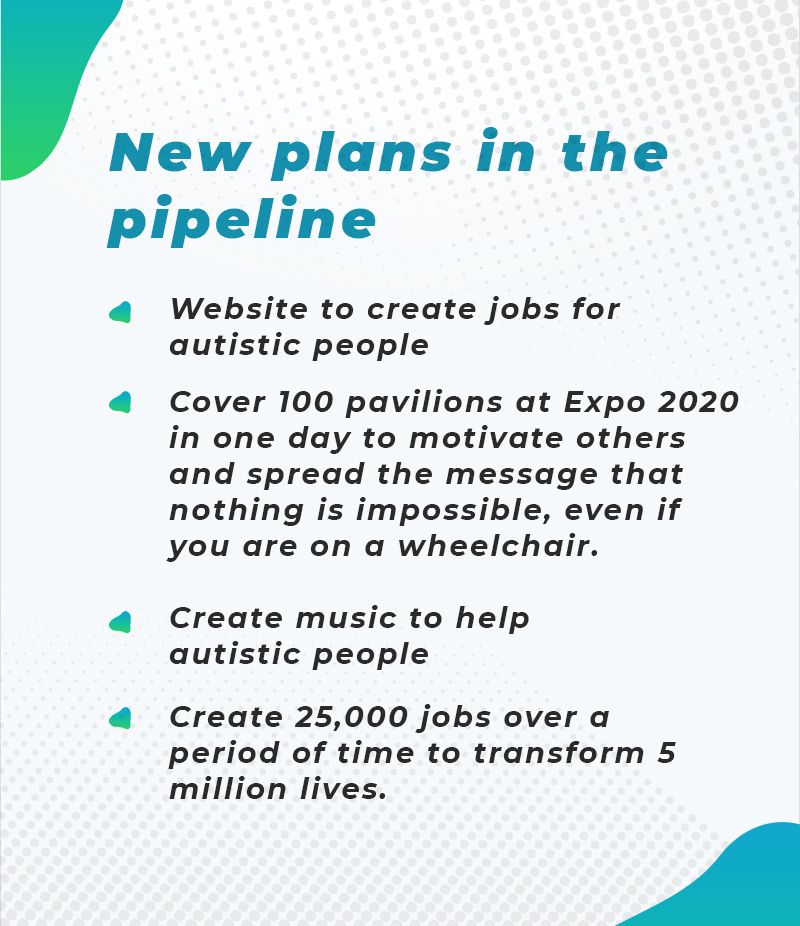
Today, apart from running his businesses, Ravindra is focussing on Amal – an organisation which counsels and trains people of determination (PoD).
The idea is to work with and train people of autism and employ them. “PoDs are looked down upon in most countries, but here they are given tremendous opportunities. My hope is that every industry has a PoD cell to recruit PoDs.”
At the Future Innovation Summit, organised by the Private Office of Sheikh Saqer Bin Mohamed Al Qasimi, he received an award for an initiative to provide jobs for people of determination.
Ravindra’s dream is to merge what he is good at doing – technology and music – with autism and special needs, helping give people a better life.




